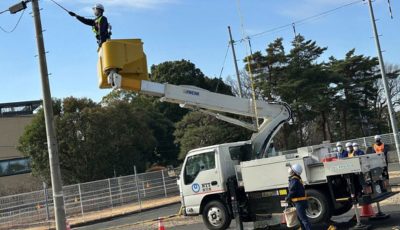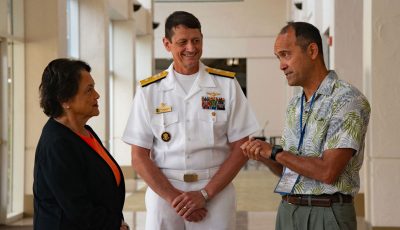OAG wants King to take witness stand
The Office of the Attorney General wants lawyer Janet H. King to testify in connection with her former client Joseph Acosta Crisostomo’s allegations that she and her two co-counsels gave him ineffective assistance, leading to his conviction in the murder of a bartender.
This developed as the OAG objected to Superior Court Presiding Judge Roberto C. Naraja’s order that gave the Department of Corrections and DOC Commissioner Vincent Attao just seven days to prepare for an order to show-cause hearing.
Naraja’s Sept. 25 order set the order to show cause hearing for Oct. 9, 2018.
Naraja issued the order after Crisostomo wrote a handwritten petition for habeas corpus addressed to him (Naraja), in which he accused his lawyer, King, and her co-counsels from Guam, of providing him ineffective assistance.
Crisostomo is also suing DOC and Attao.
Naraja assigned the case to himself. Associate Judge Joseph N. Camacho presided over the trial and slapped Crisostomo with a sentence of life imprisonment.
Assistant attorney general Robert J. Pickett, counsel for DOC and Attao, filed yesterday a motion to postpone the date of the hearing on the order to show cause.
Pickett said that “pushing forward with a rushed hearing” would cause grave harm, possibly causing a lengthy and costly retrial of a murder.
Pickett said neither the OAG nor any of its officers have been served with the order to show cause.
He said members of the OAG learned of Crisostomo’s petition by reading about it in the Saipan Tribune last Friday, Sept. 28.
He said they had to request a copy of Crisostomo’s petition, which they did not receive until last Tuesday, Oct. 2.
Since then, Pickett said, he has been working diligently to prepare DOC’s and Attao’s defense.
He said Naraja issued the order to show cause last Sept. 25, and gave DOC and Attao just seven days to respond.
“Seven days is completely impossible,” he pointed out.
He said Naraja required DOC and Attao before or at the hearing to provide a return showing why Crisostomo is lawfully detained.
“Creating a return on a case of this complexity with a voluminous record going well into the thousands of pages is impracticable within seven days,” Pickett said.
He said Crisostomo raises six to eight grounds for relief, each of which require different legal and factual investigations.
He said while Crisostomo will have a return prepared by the hearing date, it will be based upon incomplete information.
Citing an example, Pickett said Crisostomo raises issues with hearings held on March 21, 2014 and on another unspecified date shortly before trial dealing with whether his co-counsels from Guam would be present at his trial.
He noted that transcripts from these hearings have not been prepared and constitute crucial evidence, which will be unavailable for the hearing.
Pickett said King, who was the lead counsel for Crisostomo at trial, will be off-island for argument before the U.S. Court of Appeals for the Ninth Circuit on the date of the hearing.
He said King as of late Wednesday, insists that a court order be obtained that allows her to disclose information to the OAG prior to discussing the case with the OAG, so she does not violate ethical rules relating to attorney-client privilege.
Pickett said all but one of Crisostomo’s claims relate to King’s allegedly ineffective representation.
While some are legal issues that could possibly be resolved without King, Pickett said the other allegations, such as Crisostomo alleging that King threatened him in order to get him to waive the presence of his Guam attorneys at trial, may only be rebutted by King’s testimony.
With King unavailable to provide an affidavit before the hearing and unavailable to testify, it would be impossible for DOC and Attao to have a fair hearing, he said.
In addition, Pickett said, the two Guam attorneys—F. Randall Cunliffe and Jeffrey Moots—are off-island and unavailable.
Failing to put off the case will prevent DOC and Attao from examining the record, deny them the ability to obtain evidence, and force a hearing when the most important witness is off-island, Pickett said.
On April 24, 2014, a jury convicted the then-40-year-old Crisostomo of first degree murder, kidnapping, sexual assault in the first degree, and robbery.
The victim, Emerita R. Romero, 37, was last seen boarding a car near her house in Garapan in the early morning hours of Feb. 5, 2012. She was supposed to meet her boyfriend in Chalan Piao. Two days later, Federal Bureau of Investigation agents found her body in a small bathroom at the abandoned La Fiesta Mall in San Roque/As Matuis.
Last July, the CNMI Supreme Court affirmed Crisostomo’s convictions.



























